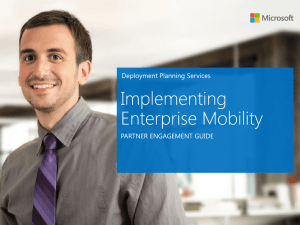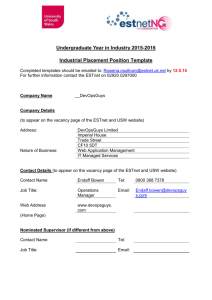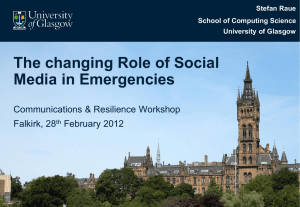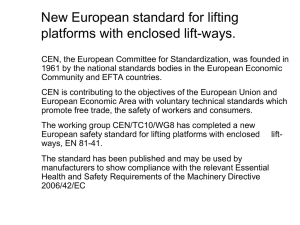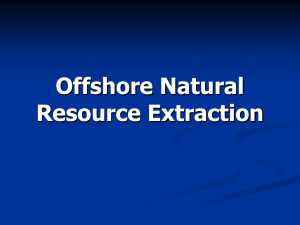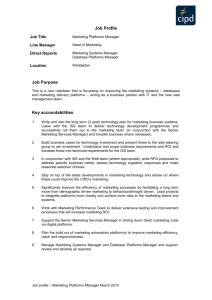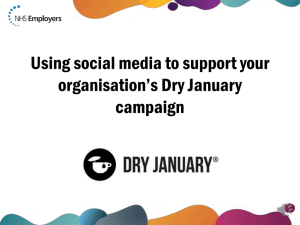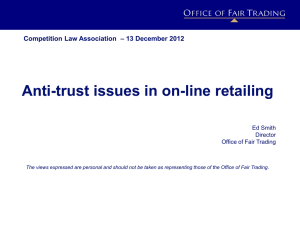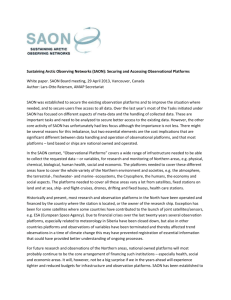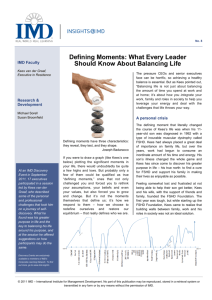20110727 Reflection meeting-Final
advertisement
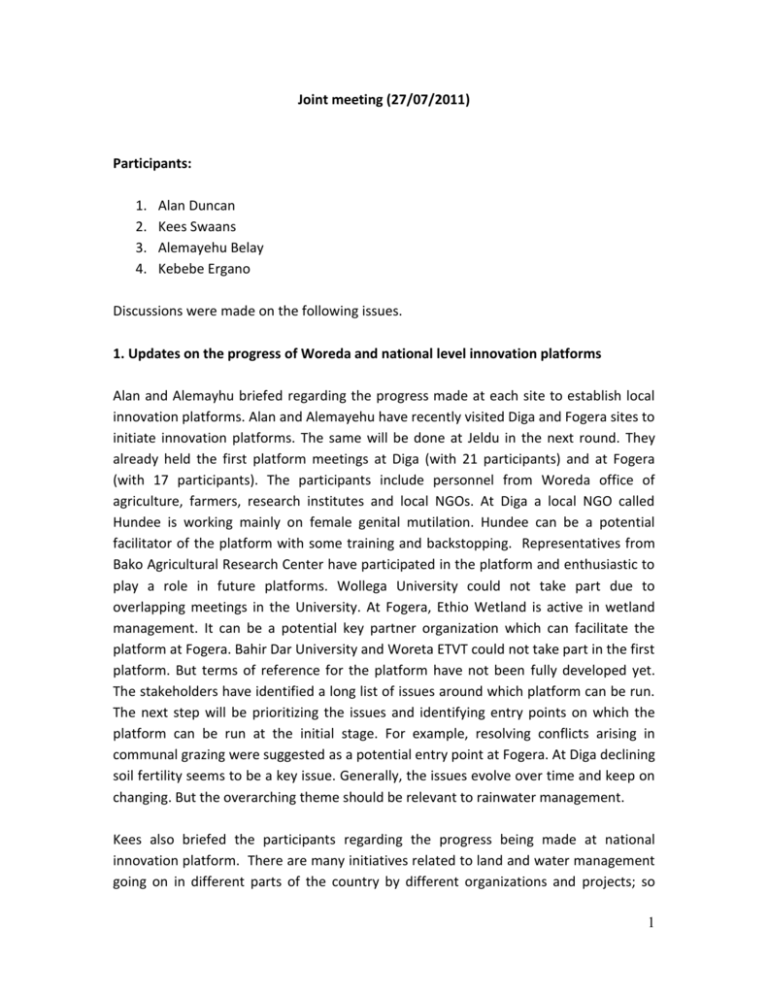
Joint meeting (27/07/2011) Participants: 1. 2. 3. 4. Alan Duncan Kees Swaans Alemayehu Belay Kebebe Ergano Discussions were made on the following issues. 1. Updates on the progress of Woreda and national level innovation platforms Alan and Alemayhu briefed regarding the progress made at each site to establish local innovation platforms. Alan and Alemayehu have recently visited Diga and Fogera sites to initiate innovation platforms. The same will be done at Jeldu in the next round. They already held the first platform meetings at Diga (with 21 participants) and at Fogera (with 17 participants). The participants include personnel from Woreda office of agriculture, farmers, research institutes and local NGOs. At Diga a local NGO called Hundee is working mainly on female genital mutilation. Hundee can be a potential facilitator of the platform with some training and backstopping. Representatives from Bako Agricultural Research Center have participated in the platform and enthusiastic to play a role in future platforms. Wollega University could not take part due to overlapping meetings in the University. At Fogera, Ethio Wetland is active in wetland management. It can be a potential key partner organization which can facilitate the platform at Fogera. Bahir Dar University and Woreta ETVT could not take part in the first platform. But terms of reference for the platform have not been fully developed yet. The stakeholders have identified a long list of issues around which platform can be run. The next step will be prioritizing the issues and identifying entry points on which the platform can be run at the initial stage. For example, resolving conflicts arising in communal grazing were suggested as a potential entry point at Fogera. At Diga declining soil fertility seems to be a key issue. Generally, the issues evolve over time and keep on changing. But the overarching theme should be relevant to rainwater management. Kees also briefed the participants regarding the progress being made at national innovation platform. There are many initiatives related to land and water management going on in different parts of the country by different organizations and projects; so 1 there is a big potential for sharing and learning. Hence, the Nile Basin Development Challenge Program organized a planning meeting, which was held on April 8, at ILRI campus; more than 50 organizations participated and were positive about the formation of a national platform; it was agreed that a small working group would take the results further and organize the first national platform meeting. The working group meeting (from now on called ‘steering group’) was held on 26 July, 2011. Representatives from key projects/programs participated. The idea is that the national platform will mainly focus on lessons emerging from different initiatives and reflecting on overarching institutional and policy issues. Kees and Tilahun are representing NBDC in the national platform. The lessons from Woreda level platforms are expected to feed lessons to the national platform, but it is also the intention that local initiatives benefit from reflections and recommendations at national level. 2. Defining system innovation project and the system innovation ambitions The participants reflected on overarching system innovation problems the project intends to tackle through platforms. Some rainwater management challenges have been identified by the stakeholders in the project sites during inaugural meetings. In subsequent stakeholders meeting platform members need to agree on priority system innovation problems and entry points in each site. Once entry points are chosen, a number of activities will evolve over time and the platform will deal with them over the course of project life and beyond. Multi-stakeholder platforms will be run around locally driven RWM interventions while NBDC staffs play facilitation role at the initial stages. 3. Selecting project partners and participants A few platform participants have been indentified so far. We hope to engage additional stakeholders as the process progresses. 4. Financing the platform facilitation activities There is very limited project budget for operation. To fill this gap, a proposal for local challenge fund has been prepared to apply to the CPWF Innovation Fund. If secured, the money can be used to finance innovation platform facilitation activities. The application will be shared among participants of this meeting. 2 5. Stakeholder platform monitoring It was agreed that there should be some division of tasks among NBDC staff regarding innovation research. Kees will mainly be responsible for national level stakeholder platforms and liaison between the local platform and national platform as well as general backstopping of NBDC innovation work. Kebebe will be responsible for documenting and synthesis of the lessons emerging from the platforms and for developing a plan for monitoring of innovation processes at local level. Alemayehu, Zelalem and possibility Aberra will be responsible for following regular ongoing activities of IP’s at project sites and acting as early facilitators of innovation platforms. Local experts will eventually play a role in facilitation of innovation platforms. Alan will be responsible for overall coordination and management of the platform activities at the local level. Beth will monitor the process using Participatory Video and will be further involved in innovation work once her work plan has been developed. The whole team will have a role in updating the existing “innovation log”. These roles are currently fluid and will be worked out as time goes on. The idea was suggested to have regular/periodic reflection meetings, in which the progress/emergent issues that come forward from the field/innovation platforms are critically discussed among project staff (e.g. facilitators, project coordinators and researchers); it would interesting e.g. to reflect on how the field activities relate to research insights so far. Are there any gaps, tensions, etc…and how do we deal with that? This will require someone who can lead this process (that could be Kebebe, Kees, or others – to be discussed later). Kebebe’s PhD research strives to find integrated approaches that enhance livestock intensification by coupling bio-economic modeling with innovation systems approach. Pertaining innovation research, Kebebe will do in-depth assessment of institutional constraints to livestock development and synthesize lessons emerging from innovation platforms. He will develop a plan for monitoring of innovation processes at local level based on indicators from Reflective Monitoring and Action tool and others. 6. Overarching research questions The major research question is testing the potential of stakeholder platform process in inspiring innovative solutions that support improved rainwater mangement. Other research questions include cost effectiveness and scalability of innovation platform. We 3 also need to think about cross-basin research questions and the forthcoming Ag Share Fair and IFWF3 will present opportunities in this respect. 7. Next steps Kebebe: Drafts platform monitoring and evaluation strategy and shares with Kees and rest of the team before the end of next week; he will also make some suggestions for overarching research questions. Kees/Alan: Give feedback on monitoring and evaluation strategy Alemayehu and others: Fills up the innovation log in the wiki (in relation to field visits for setting up local innovation platforms) 4
